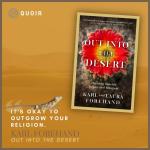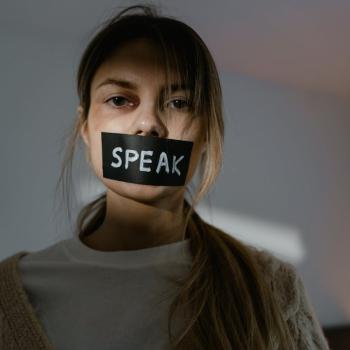
In my best evaluation, people have always been drawn towards things like religion to try to explain the things we could explain. The ceremonies and communities we built around our understanding and misunderstanding helped us shape some meaning into the world.
I believe we can honor those traditions and, sometimes, even memorialize them while boldly and consciously moving into the future. Just because we were certain about things at one time doesn’t mean we possessed the wisdom for all time. As my friend, Keith Giles, says “The first thing we must deconstruct is our certainty.”
At times in my journey, I’ve been tempted to try to reorganize my faith to a past iteration of it. We have all had conversations about things like the first century faith and Orthodox Christianity. I understand why we often try to “get back” to doing things the way we used to. But, eventually we have to be sober conscious enough to live in the time period in which we exist. To do anything else is not to be present and, in my opinion, is not wise.
So, how do we best thrive in the 21st century?
1. Honest Assessment
For me, the first step was to get outside of organized religion for a year to take an honest assessment from a different vantage point. During this evaluation, I had to realize all of my previous conditioning. The water I swam in was not only polluted, it was also intoxicating. and accessible, and somewhat comfortable.
During this process, Laura and I wrote a book called Out Into the Desert, where we talked about this process of evaluating everything. It included our painful stories of of 20 years of ministry and an honest assessment of whether or not we were thriving in the desert.
This kind of assessment isn’t easy and sometimes even leads to things like unprocessed trauma.
2. Facing Woundedness.
As I mentioned in a previous blog, organized religion often doesn’t leave space for our trauma. Spiritual bypassing is common because the hard work of dealing with our pain often is easier to dismiss when faced with the busyness and urgency of the organization. The needs of the many crowd out the need of the one. Churches talk about leaving the 99 and going to the 1, but they seldom practice it in their own organizations.
When we deconstruct away layers of religion and beliefs, what we often find is unprocessed trauma and things that need our attention. If we are diligent, there are many tools available to help us with this process. We simply have to make space for the process and be willing to do the hard work. In my opinion, it is absolutely worth it.
3. Stay Open
I think we should change the name of things like creeds. Instead of saying “this is what we believe,” I think we should say, ” this is our basic assumptions at this time.” This would lead to much better spirituality. The Benedictine sister that told me, “none of us is right” started me on my evolution of discovery that I have not regretted.
Our assumed need for certainty has never led to anything noble. It only fuels common enemy intimacy and causes us to otherize and build organizations to protect ourselves. The worthwhile journey is a forward-looking gaze toward uncertainty and mystery and discovery.
If it hasn’t happened to you yet, it will! One day you’ll realize that you’ve outgrown your religion. At first you will be angry for the time that you wasted and you might be sad for the people injured along way. But then you will feel the breeze of freedom brush through your hair and your eyes will refocus toward the horizon and the adventure you are on.
Then you will realize that all you can do is tell your own sacred story. You’ll find people alone the pathway in the desert that deserve to hear your story and believe it. Others will criticize and gaslight you because they couldn’t find the courage to do the evaluation and consider the options.
When your old religion and practices become compost for your future growth, it will be tempting to roll around in the manure because you have become accustomed to it. But once you have evolved past it, it will never feel comfortable again. And that’s a good thing!
The allusion that we discover truth all at one specific time in history, and then we know it forever is an illusion perpetrated by people who are afraid and need to control. What we are discovering now is important, but eventually it will also slip through our fingers to some degree.
Our task is to keep pointing forward and holding on loosely to everything we are certain about. Many of us are on this journey and we hope you join in the discussion!!
Be where you are,
Be who you are,
Karl Forehand













